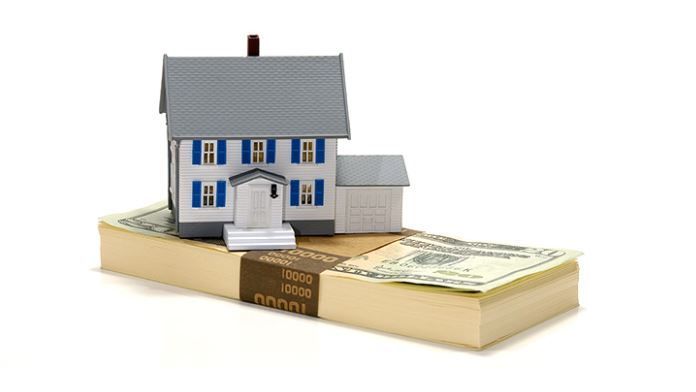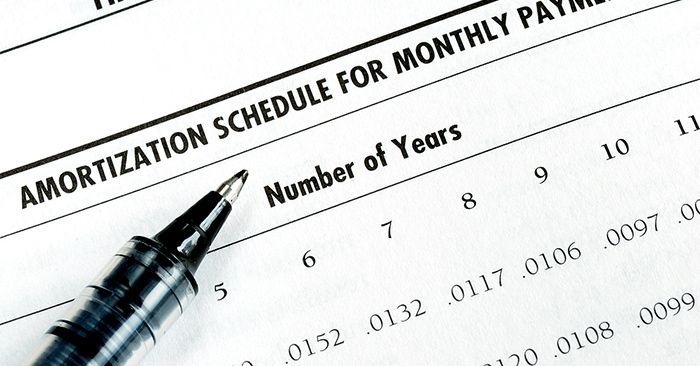Leveraging Your Home Equity to Ease Money Worries and (Better Yet!) Build Wealth

When you’re worried about money, it can feel like you’re the only person in the world who’s struggling to figure out how to pay for things. So it may come as a relief to find out that you’re not alone if you’ve got money on your mind.
In fact, a recent survey of 2,000 people with less than 2 months worth of liquid assets revealed that 77% of them felt like they carried the mental and emotional weight of the finances in their household alone, and spent an average of 19 days worrying about money per year. About 25% of those surveyed said they devote a full week each month on budgeting, checking their bank account balance, and reviewing their credit card transactions.
It may not make it any easier when you’re dealing with the stress, but at least you know it isn’t a unique situation.
However, if you own a home, the past few years have probably put you in a position to worry a bit less, and maybe even put you in a better financial position in life moving forward.
How to Tap Into the Hidden Financial Potential in Your Home
Home values have risen substantially in many areas over the past few years. Even if you haven’t done any major improvements to your house, the chances are your equity has grown considerably, which means you have some potential money that could be put to good use.
Your equity is the difference between the amount your house is currently worth, and the amount you owe to any lenders.
For example, if you owed $240,000 (which is about the average mortgage balance per household according to Bankrate), and your house was worth $513,000 (which is the approximate average home price in the US according to Federal Reserve Economic Data), you’d have $273,000 worth of equity.
Unfortunately, that money isn’t real until and unless you monetize it. Other than selling your house, there are two basic ways to do that:
- Do a cash-out refinance. This means you would take out a new loan on your house for more money than you currently owe, paying off the balance of the existing loan, and pocketing the difference between the new loan and existing loan you paid off.
- Take out a home equity line of credit (HELOC). This is a revolving line of credit using the equity of your home as collateral.
In both approaches, lenders will typically allow you to borrow up to 80% of your equity. Using the above numbers as an example, if you refinanced your house with a $300,000 mortgage, you would free up about $60,000. Or you could take out an equity line of credit for $60,000 so you keep your existing mortgage rate if it’s one you want to keep.
That $60,000 is money you could use as breathing room to feel less stress over the what-if’s in life, like unexpected expenses, or, better yet, to improve your financial situation by using it strategically to make more money.
Just Make Sure to Use It Wisely…
No matter which way you tap into existing home equity, you’re going to have to pay that money back because they’re loans against the current value of your house. So, while just freeing up some cash to give you peace of mind and less stress is certainly helpful, using that money to make more money is the ideal way to put it to use.
This article from CBS News listed 5 smart ways to use your home equity in 2024, such as:
- Use it to increase the value of your home even more. Doing some renovations or improvements that increase the value of your home can be a great use of equity. Just make sure to make strategic choices that will actually have a positive return on your investment by asking your preferred real estate agent for advice on the improvements that’ll give you the most bang for your buck.
- Pay down higher interest debts. If you have credit card debts that are difficult to pay down, using your equity to get rid of those high interest payments can be a great way to clean the slate. Just make sure you don’t go right back to using those credit cards and accrue more debt again, and use the money you aren’t paying towards paying down those credit cards to start saving some money for emergencies, retirement, and a monthly safety net.
- Invest in education. Whether it’s for you or your children, advancing earning potential by investing in education can be a useful way to use your equity. Just make sure the prospects for jobs in the field of study will be worth the cost of the education, and then some! (Also, weigh whether simply taking out student loans would be less risky, or more cost effective than using your equity.)
- Buy more real estate. Using the equity in your current home to buy an investment property that provides you with positive cash flow is a great way to add to your wealth by having another property that you’re building even more equity with. Just make sure to work with your preferred real estate agent closely and buy a place that will produce enough income to cover the mortgage and expenses, and ideally some extra cash you can pocket per month.
While monetizing the equity you’ve gained can certainly make life easier, less stressful, and even financially better, just remember to be thoughtful about how much equity you take out — especially if you plan on selling in the next few years. Home values are still currently at all-time highs in many areas, and look to remain strong, but they can also drop depending upon how the market plays out. So leave yourself a good amount of equity in your home to stay safe.
Also, make sure you can afford to pay the money back on a monthly basis, and you aren’t just adding more debt that you’ll have to pay off and worry about. Ideally, use it for good reasons that make sense financially, and not to take a trip to a resort or or go on shopping sprees.
The Takeaway:
If you find yourself worrying about money being tight each month, you’re not alone. In fact, a recent survey revealed that 77% of people with less than 2 months worth of liquid assets felt like they carried the mental and emotional weight of the finances in their household alone, and spent an average of 19 days worrying about money per year.
But if you own a home, you may have equity you can tap into that will ease the monthly stress by freeing up some of the cash tied up in your home’s value by doing a cash-out refinance, or taking out a home equity line of credit. Better yet, if you invest it wisely you can use it to improve your finances! Just don’t tap into your equity for frivolous expenses, or take on more debt than you can comfortably handle.
Share this post




